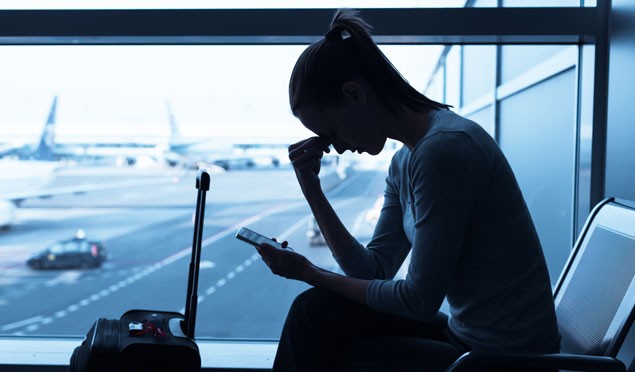Five key questions to ask about travel insurance

Last updated on 12th December, 2017 at 04:39 pm
Taking a trip, whether it’s local or abroad, is always exciting. But unforeseen expenses such as illness, lost luggage or flight delays can spoil what’s meant to be a trip of a lifetime. We look into the ins and outs of travel insurance.
How many of us read the fine print on our insurance contracts to see what we’re covered for until that day when we actually need it? Here are five questions to help you select the optimal travel insurance for your trip.
Question 1: What happens if I get sick or hurt while I’m on holiday?
The biggest cost will be if you have a health problem while you’re travelling overseas. Think about it. Your medical bills are going to be in a foreign currency (many of which are stronger than the rand), which means the costs are automatically more expensive. Given the state of our currency against the pound, euro or dollar, the hole in your pocket might end up being excruciatingly painful, especially if you need major surgery or costly emergency transport from a remote spot while on holiday. It is imperative to have a reliable medical assistance network available to you on a 24/7 basis.
Always check the extent of your cover, and what the exclusions are on your contract. For example, if you’re over a certain age (usually 70, depending on your insurer), or if you have a pre-existing condition, such as a heart problem, you may have to take out top-up cover or special cover. If you’re pregnant when you’re travelling, you’ll generally only be covered if something goes wrong up to the 26th week of your pregnancy.
It is in your interest to ensure that you understand the limitations of any applicable free cover as the benefits are limited and they will not cover the costs of the most expensive medical treatments.
Question 2: I’m thinking of adding some adventure sport to my itinerary. Will I be covered by my insurance?
If you want to add an adrenalin rush to your holiday, you may not be covered depending on whether your travel insurer deems the activity too dangerous. So make sure that you make enquiries with your travel insurer about the extreme nature of the activity you wish to do.
Similarly, unless you’re a gung-ho reporter or providing humanitarian aid, there are some hotspots that really should not be on your bucket list. Your insurance generally won’t cover you if the place you want to visit is considered a conflict zone or a high-risk area.
Question 3: My suitcase came off the plane looking like it had gone 10 rounds with a sumo wrestler, what can I do?
Most airlines will cover you for lost, stolen or damaged luggage while you’re in transit, but make sure you report your loss to the airline immediately to qualify for a claim. Insurers will compensate you for any possible shortfall as per their policy terms and conditions.
Insurers will also compensate you if you lose money, your travel documents or your belongings, but again, this is provided you’ve reported your loss to the local police within 48 hours, and you haven’t been reckless or negligent in causing the loss. For example, should you leave your wallet full of cash on the lounger next to the pool while you take a dip and it disappears, you will not be covered by your insurance company.
Question 4: I missed my connecting flight home because there was bad weather. Can I claim the cost of having to rebook?
You will be covered in instances where you’ve missed your connection due to bad weather causing a delayed flight. But if you’ve missed your flight because your alarm didn’t go off or you didn’t allow enough time to get there, then the cost of rebooking is on you. Since there are a number of instances where you can claim because your trip has been delayed, cancelled or curtailed, it is always recommended that you seek the advice of your trusted travel insurer.
Insurance companies will also reimburse you if your trip is cancelled due to totally unforeseen circumstances, such as your travel supplier going belly up, a death or illness in the family or retrenchment.
Question 5: I’ve paid for my trip on my credit card, how comprehensive is the automatic travel insurance attached?
It sounds great, right? Free insurance on your credit card, but bear in mind that the product mostly provides for a limited amount of medical expenses, with limited cover for other losses. More importantly, the amount of cover you have is linked to the type of credit card you have with your bank. An entry-level credit card is not going to compensate you nearly as much as a gold or platinum card.
There are other losses that your insurance contract may or may not cover you for while you’re travelling, so check out the details of your policy to make sure you are adequately covered for any eventuality.
By Nicci Botha
Want to learn more?
We send out regular emails packed with useful advice, ideas and tips on everything from saving and investing to budgeting and tax. If you're a Sanlam Reality member and not receiving these emails, update your contact details now.
Update Now







